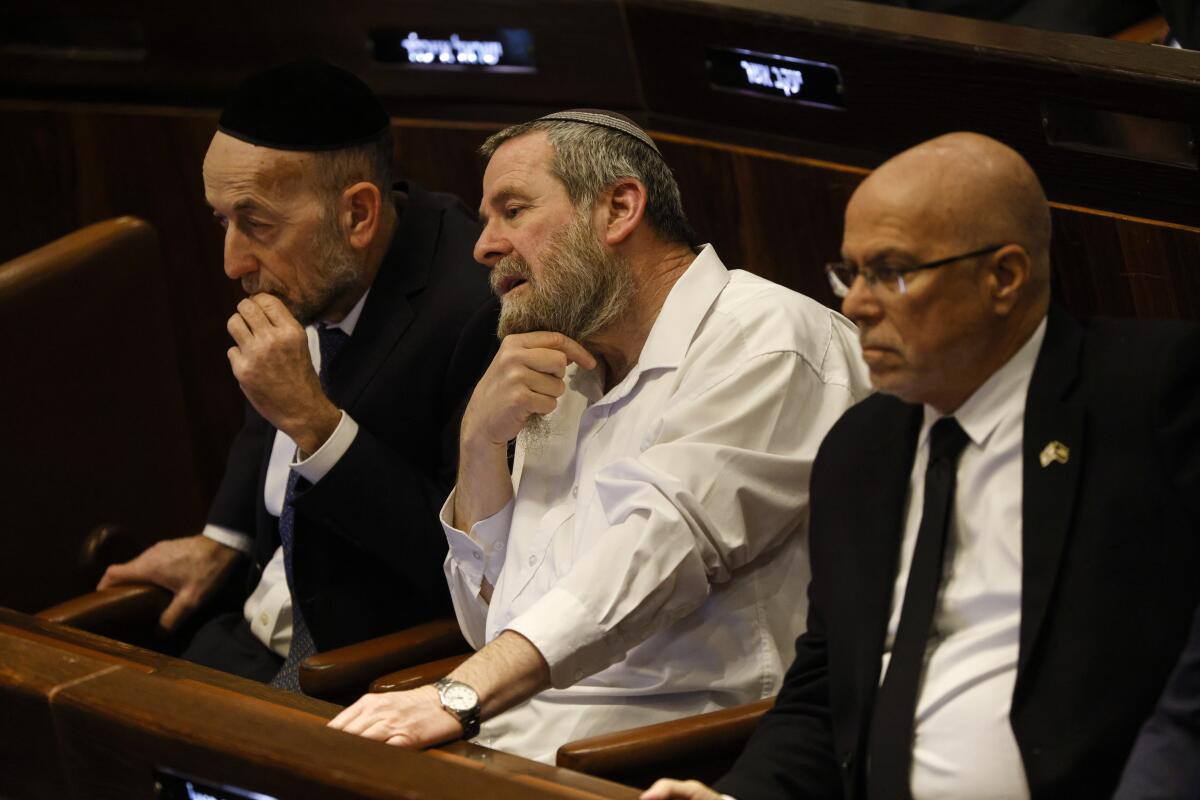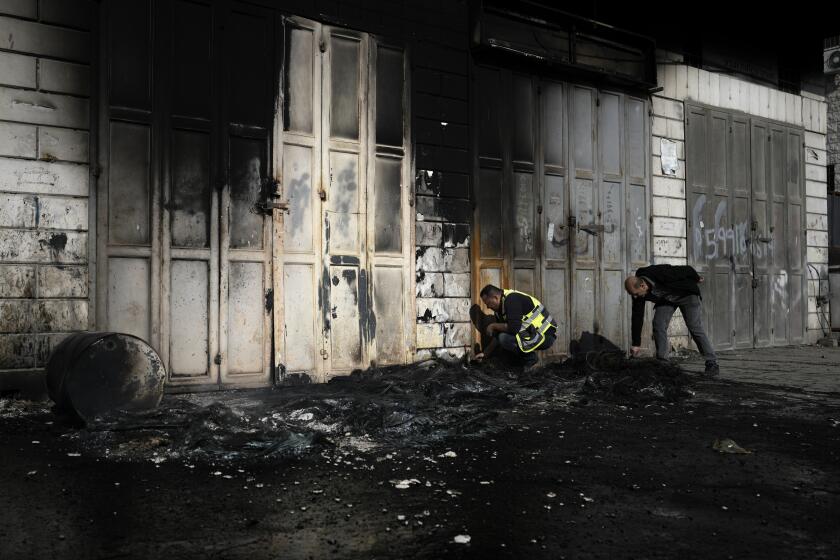Ultranationalist ally of Netanyahu quits as deputy minister in Israeli government

- Share via
JERUSALEM — An ultranationalist ally of Israeli Prime Minister Benjamin Netanyahu has tendered his resignation as a deputy minister in the new government.
Avi Maoz’s departure is the first crack in Netanyahu’s ruling coalition, which assumed office in late December after securing a parliamentary majority in the November elections.
Maoz, the head of a small ultranationalist faction who is known for his homophobic rhetoric and disparaging remarks about non-Orthodox Jews, said he would step down as a deputy minister but would continue to vote with the coalition in parliament. Netanyahu’s ruling coalition holds 64 seats in the 120-seat Knesset.
Maoz, the leader of the Noam faction, wrote in a letter to Netanyahu on Monday that he “found that there is no serious intention to uphold the coalition agreement” concerning an office to bolster Jewish identity among Israelis.
Maoz is a Jewish fundamentalist and West Bank settler who is an outspoken opponent of LGBTQ rights and women serving in the military. He has voiced opposition to Arabs teaching Jewish students in Israeli schools and has denied the legitimacy of non-Orthodox Judaism, including the Reform and Conservative movements, which are marginal in Israel but dominant in the U.S. and have long provided the country with financial and diplomatic support.
The Noam faction ran in the last elections on a joint ticket with Itamar Ben-Gvir and Bezalel Smotrich’s Religious Zionism party, which won 14 seats in the Knesset, making it the third-largest faction.
It’s the latest bloodshed in a wave of violence, a day after two Israelis were killed by a Palestinian gunman elsewhere in the West Bank.
Netanyahu and his allies are advancing a series of bills that aim to weaken the Supreme Court and give politicians greater power over judicial appointments. Opponents of the judicial overhaul say the proposed changes threaten Israel’s democratic institutions and will concentrate power in the hands of the government. They’ve assembled weekly for mass protests.
“I will continue, God willing, as a member of the coalition” and support the “very important” judicial overhaul, Moaz wrote.
More to Read
Sign up for Essential California
The most important California stories and recommendations in your inbox every morning.
You may occasionally receive promotional content from the Los Angeles Times.














